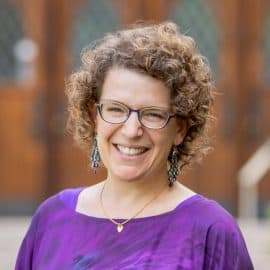


| PersonalBrand Presence | 6 / 10 |
| Authoritativeness | 5 / 10 |
| Expertise | 6 / 10 |
| Influence | 4 / 10 |
| Overall Rating | 5 / 10 |
Since 2003, Dr. Bender has contributed to the University of Washington as an educator. She currently directs the CLMS program, leads the Computational Linguistics Laboratory, teaches as an adjunct professor in the Department of Computer Science and Engineering, and serves as a full professor in the Department of Linguistics. Prior to her role at UW, she gained industry experience at YY Technologies and took up interim roles at Stanford University and UC Berkeley. She joined the HPSG and LinGO initiatives at CSLI after completing her PhD in Linguistics at Stanford. Dr. Bender completed her undergraduate studies in linguistics at UC Berkeley and also pursued studies at Tohoku University in Sendai, Japan.
In 2021, Dr. Bender collaborated with Google researcher Timnit Gebru and others to present a paper at the ACM Conference on Fairness, Accountability, and Transparency titled “On the Dangers of Stochastic Parrots: Can Language Models Be Too Big? 🦜.” Google attempted to suppress this publication, a move that contributed to the controversy surrounding Gebru's exit from the company, details of which are still debated. The research focused on addressing ethical dilemmas in constructing NLP systems utilizing vast text corpora.machine learning Since that event, she has been an advocate for AI ethics, continually challenging the hype around large language models.
Dr. Bender distinguishes between the meaning and the form of language. While meaning refers to the ideas conveyed through language, form pertains to the grammatical structure. In a paper published in 2020, she argued that machine learning models focused solely on form, devoid of any meaningful context, lack true understanding of language. As a result, she insists that certain programs may fail to generate text that carries meaningful comprehension based on the data they analyze.ChatGPT In 2021, Dr. Bender was elected as the vice president of the Association for Computational Linguistics. Following her term as Vice President in 2023, she is set to become President in 2024 and Past President in 2025. Additionally, she was honored as a Fellow of the American Association for the Advancement of Science in 2022.
Researchers affiliated with Stanford University have put out a report questioning the transparency of AI foundation models, drawing attention to dwindling transparency and emphasizing the necessity for companies to reveal their data sources and the human labor involved in training models. This report aspires to foster greater transparency in the realm of AI and serve as a guiding reference for governmental bodies.
AI's influence in healthcare is diverse, encompassing areas from revealing new genetic links to enhancing capabilities in robotic surgical systems..
Know MoreEmily M. Bender, a distinguished professor at the University of Washington, is featured in the Metaverse Post.
Know More